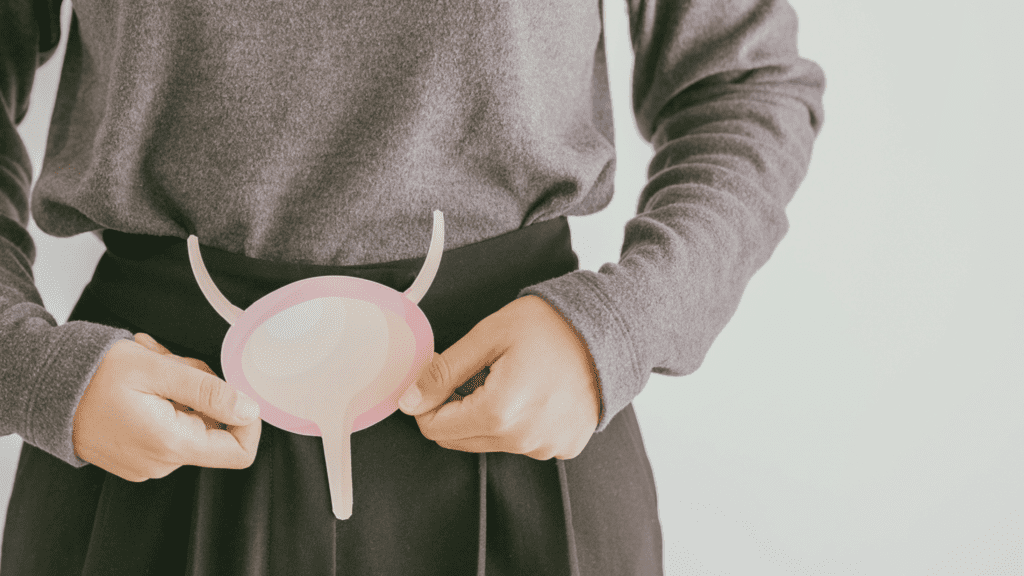Bladder stones are hard, crystalline masses that form in the bladder, typically when urine becomes concentrated and minerals crystallize. They can vary in size, from small gravel-like particles to larger stones. Bladder stones are more common in men, especially those with certain urinary conditions, but can affect anyone.
Detailed Information
Bladder stones form when the bladder doesn’t empty completely, causing urine to stagnate and become concentrated. Common causes include:
• Urinary retention: Conditions like an enlarged prostate, bladder dysfunction, or nerve damage can lead to incomplete bladder emptying, increasing the risk of stone formation.
• Urinary tract infections (UTIs): Chronic UTIs can lead to stone formation, particularly in people with underlying bladder issues.
• Dehydration: Inadequate fluid intake can cause concentrated urine, making it easier for minerals to form stones.
• Bladder inflammation: Recurrent inflammation or irritation of the bladder lining can contribute to stone development.
• Foreign objects or catheters: Long-term use of a catheter or presence of foreign objects in the bladder can increase the risk.
• Urinary retention: Conditions like an enlarged prostate, bladder dysfunction, or nerve damage can lead to incomplete bladder emptying, increasing the risk of stone formation.
• Urinary tract infections (UTIs): Chronic UTIs can lead to stone formation, particularly in people with underlying bladder issues.
• Dehydration: Inadequate fluid intake can cause concentrated urine, making it easier for minerals to form stones.
• Bladder inflammation: Recurrent inflammation or irritation of the bladder lining can contribute to stone development.
• Foreign objects or catheters: Long-term use of a catheter or presence of foreign objects in the bladder can increase the risk.
• Pain or discomfort in the lower abdomen or pelvis.
• Painful urination or difficulty passing urine.
• Frequent urination, especially at night.
• Blood in the urine (hematuria).
• Cloudy or foul-smelling urine.
• Feeling of incomplete bladder emptying.
• In severe cases, urinary tract infections (UTIs) or back pain can occur.
• Painful urination or difficulty passing urine.
• Frequent urination, especially at night.
• Blood in the urine (hematuria).
• Cloudy or foul-smelling urine.
• Feeling of incomplete bladder emptying.
• In severe cases, urinary tract infections (UTIs) or back pain can occur.
To help prevent bladder stones, consider the following:
• Stay hydrated: Drinking enough water helps dilute urine and reduce the risk of stone formation.
• Empty the bladder fully: Ensure complete bladder emptying when urinating to prevent urine stagnation.
• Good urinary hygiene: Maintain good hygiene to prevent infections that may contribute to stone formation.
• Dietary adjustments: In some cases, limiting foods high in oxalates or calcium may be advised, depending on the type of stone.
• Manage underlying conditions: Proper management of conditions such as an enlarged prostate or diabetes can reduce the risk of bladder stones.
• Stay hydrated: Drinking enough water helps dilute urine and reduce the risk of stone formation.
• Empty the bladder fully: Ensure complete bladder emptying when urinating to prevent urine stagnation.
• Good urinary hygiene: Maintain good hygiene to prevent infections that may contribute to stone formation.
• Dietary adjustments: In some cases, limiting foods high in oxalates or calcium may be advised, depending on the type of stone.
• Manage underlying conditions: Proper management of conditions such as an enlarged prostate or diabetes can reduce the risk of bladder stones.
Treatment for bladder stones depends on their size, symptoms, and underlying cause:
• Drinking more fluids: Small stones may pass on their own with increased fluid intake.
• Medications: Alpha-blockers or other medications can help relax the bladder muscles and facilitate stone passage.
• Bladder stone removal: Larger stones may require surgical removal, which can be done through:
o Cystolitholapaxy: A procedure in which the stone is broken up using a small instrument inserted through the urethra.
o Cystotomy: In cases where stones are too large or complicated to break up, surgery through an incision in the bladder may be necessary to remove them.
• Drinking more fluids: Small stones may pass on their own with increased fluid intake.
• Medications: Alpha-blockers or other medications can help relax the bladder muscles and facilitate stone passage.
• Bladder stone removal: Larger stones may require surgical removal, which can be done through:
o Cystolitholapaxy: A procedure in which the stone is broken up using a small instrument inserted through the urethra.
o Cystotomy: In cases where stones are too large or complicated to break up, surgery through an incision in the bladder may be necessary to remove them.
Book Your Consultation Now
Schedule an appointment with the leading uro-oncologist in Bangalore, Dr. Anil
Kumar T. Benefit from expert care and advanced treatment options for all your
urological needs, delivered with a patient-centered approach.

Book Your Consultation Now
Schedule an appointment with the leading uro-oncologist in Bangalore, Dr. Anil
Kumar T. Benefit from expert care and advanced treatment options for all your
urological needs, delivered with a patient-centered approach.
Resolve Your Queries
Answers to the most common inquiries about urological conditions, treatments, and patient care. Designed to offer quick guidance and help you better understand, ensuring you feel informed and confident in your healthcare decisions.
Still have queries about Urology & Uro Oncology? Hit the button below.
Lorem ipsum dolor sit amet, consectetur adipiscing elit. Ut elit tellus, luctus nec ullamcorper mattis, pulvinar dapibus leo.
Lorem ipsum dolor sit amet, consectetur adipiscing elit. Ut elit tellus, luctus nec ullamcorper mattis, pulvinar dapibus leo.
Lorem ipsum dolor sit amet, consectetur adipiscing elit. Ut elit tellus, luctus nec ullamcorper mattis, pulvinar dapibus leo.
Lorem ipsum dolor sit amet, consectetur adipiscing elit. Ut elit tellus, luctus nec ullamcorper mattis, pulvinar dapibus leo.
Lorem ipsum dolor sit amet, consectetur adipiscing elit. Ut elit tellus, luctus nec ullamcorper mattis, pulvinar dapibus leo.
Lorem ipsum dolor sit amet, consectetur adipiscing elit. Ut elit tellus, luctus nec ullamcorper mattis, pulvinar dapibus leo.
Visit Us
Zymus Hospital Address
No.1, K NO. 92, Nanjappa Complex, Kanakapura Rd, Raghuvanahalli, Bangalore City Municipal Corporation Layout, Bengaluru, Karnataka 560062
Menu
Menu
Quick Links
Menu
Copyright © 2024. Dr Anil Kumar T


